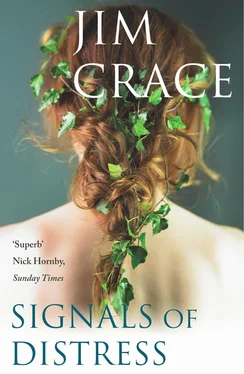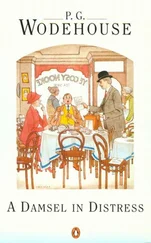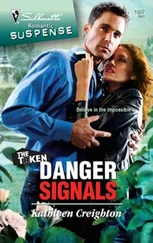Now — his voice macadamized by nicotine — he told the diners at the inn how the brothers and their passenger floated down the St Lawrence ‘sitting as straight as three proud men in church’, with backbones of ice and oars frozen to their hands. ‘You’d think they were alive,’ he said. ‘Or ghosts.’
‘They were picked up within a day by a sailing ship. She was the Lizzie Wilce , and she was heading out off Anticosti Island in the Gulf for Liverpool. The boatmen and the Bostonian had been dead five months. But they looked as fresh as eels. The captain tried to bring them round with slaps across their backs. And brandy. He thawed them out in front of the little grate in his cabin. Two of them had to be buried at sea. They stank like mackerel. The third, though, looked more like salmon. He had a touch of pink around the gills. So they put him in a hip-bath and covered him in steaming towels and let him soak. By the time the Lizzie Wilce had crossed the mid-Atlantic ridge the man was calling out for grog. And by the time they’d reached the Irish Sea he was full enough of life to win ten dollars off the captain in a game of five’n’one. You’d never know he’d been iced up all winter. Except the ship’s surgeon had to cut away two toes. And half his nose. He could neither walk nor talk without a limp. He drank and gambled his way to Liverpool. He liked it there; the mildness of the winters, the thinness of the ice. He stayed. Now he’s got a chandler’s business, on the dock. He vows he’ll never step aboard a boat again, nor risk another nostril in the ice. I’ve seen the man myself. I bought this pipe off him. We shared a drink together. He told me how he’d lost his nose. I didn’t see his feet, or count his toes. Nor can I tell you who he was. One of the brothers? Or the Bostonian? He wouldn’t say, for fear of it getting back to his family. And every word is true. What say you, Mr Smith?’
‘I say, you’d think the way he spoke would give the man away,’ said Aymer, meaning to demonstrate his good humour. ‘What kind of accent did he have? I suppose a gentleman from Boston can be distinguished from a Canadian boatman.’ John Peacock pinched his own nose between his fingers. ‘I gould nod dell,’ he said. ‘I gould nod unterdand a wort he sait. He hagn’d gok no dose!’
‘Then, if you did not understand a word, how, how did this story …?’ said Aymer, but his question was drowned in the applause which Aymer took to be at his expense. Even Katie Norris had clapped her hands.
The captain slapped him on the back: ‘What would your chemists say to that?’
Aymer did his best to join the laughter. He clapped his hands too — a little late — and swung round on his seat to deflect their attention. He saw that Mrs Yapp, who’d been listening at the parlour door, had a pair of arms around her waist and was holding a man’s finger in her hand. It was Walter Howells, less muddy than he’d been but still with traces of the coast on the lappets of his jacket. He laughed longer than the rest, and then stepped forward to the table. ‘Captain Comstock. Good evening, sir.’ They shook hands. And then the agent offered his hand to Aymer, without the least trace of discomfort or apology. ‘Mr Smith. I’m pleased to see you so established in Wherrytown. You should have sent me word of your arrival.’ There was no choice for Aymer but to be civil.
‘Perhaps we should go to a quieter place so we can talk. I’ve bad news …’
‘There’s no news that’s so bad it won’t wait till tomorrow,’ Howells said. ‘Enjoy your supper and your beer. I’ve business with the captain for tonight. And they are pressing matters.’ He gave a short and portly bow to Mrs Norris, nodded at her husband, banged John Peacock on the back with a ‘Bravo, sir!’ and went out of the parlour with Captain Comstock at his heels.
Aymer did his best to recompose himself. He entertained the company with his opinions on Reform, Phrenology and Agriculture. He disclosed for them his whole budget of alerting anecdotes. When the treacle pudding was dished he refused his portion, and was admired for it, he thought, especially by Mrs Norris, who was unable to clear her plate entirely.
‘I take no sugar,’ he explained. ‘I eat my supper bitterly, but with good conscience, sugar being the consequence of slavery. Slave dust, that’s my name for it. There is no place for sweetness on my plate.’
‘This is the man that begs for sheets,’ said George, placing Aymer’s pudding in front of John Peacock. ‘Now there’s an oddity.’
‘I do not see it, George. What oddity?’
‘They’s cotton sheets. And cotton is the consequence of what? I’ll have your bed stripped back to the bolster, so you can sleep in peace. Just say the word.’
‘A nice distinction, George,’ said Aymer, and stopped the laughter with a yawn.
AYMER SLEPT WELL for the best part of the night, despite the concert of coughing sailors and, occasionally, a barking dog. He was asleep when Katie and Robert Norris came to the room, a little before midnight, after their habitual walk down to the quay. He didn’t hear their whispering. Nor the rustle of their clothes. He’d drunk more beer than he was used to. So, though his sleep was fast and deep, his dreams were urinous. He dreamed he’d wet himself, and then that he was passing water in the office at Hector Smith & Sons and that Matthias caught him doing it. He dreamed that Mrs Yapp had slipped between his sheets. She took his penis in her hands and she relieved him — but of what? The urine and the semen were confused.
He woke to whispering and low light, which lay in a broad band across his blankets where the curtains round his bed had parted. He’d slept till dawn. He’d have to rise and go down to the alleyway to urinate. He couldn’t use the chamber pot, not with the Norrises so close. Their whispering began again. He didn’t move, but tried to catch the words. It was Katie hushing Robert, giggling, saying what? Was it, ‘I can’t, I can’t’? Aymer turned onto his side. What was more natural for a man with one bruised shoulder than to seek to ease the pain by lying on his uninjured side? He held the bed curtain back an inch or two so that he could see into the room, but not be seen himself. He couldn’t see the Norrises nor where they slept. They’d taken care to seal themselves.
Aymer must have slept again. When he next held the curtain back the morning light had filled the room. He heard the other bed give way, and then two bare legs appeared below the screening curtain. It was Katie. When she stood and stepped into the light her nightdress fell to hide her legs down to the ankles. Her calves were stocky and lightly freckled. She was the colour of a thrush. Robert’s hand came out and pinched the loosest flesh on her backside. She put a finger to her mouth and pouted ‘Ssshhh!’ She tiptoed to the bed end and half obscured from Aymer by the curtains she stooped to find the chamber pot, to rid herself of last night’s beer. She had her back against the light. Her sandy hair was thick and carroty against the cheap plantation cotton of her white nightdress. Aymer didn’t dare to breathe. He watched her shorten as she squatted on the pot. He couldn’t see her urinate. But there was sound and smell. She stood and put the pot away and then, pulling the curtain aside, returned to bed. Her husband pushed her nightdress up, above her knees, beyond her thighs. He showed her buttocks to the room. Aymer couldn’t see their heads, but he could watch their bodies in that early light embracing, wrapping, bending like a pair of fish: a stringy eel, a plump and mottled salmon.
Aymer hadn’t seen a naked woman before. Katie was his first. He was surprised how broad she was, and how thickly — and darkly — the hair grew between her legs. Robert had his spectacles on and a hand on each cheek of her buttocks. He pulled on her as if her flesh was dough, except this dough was pink and glinting at its heart.
Читать дальше












